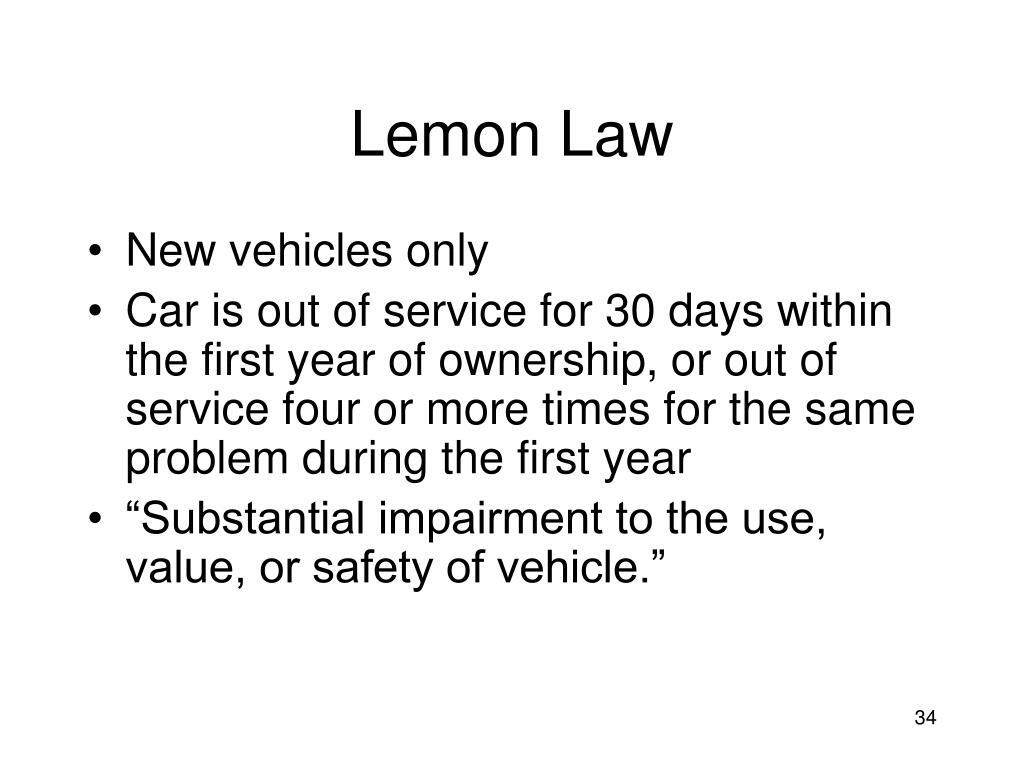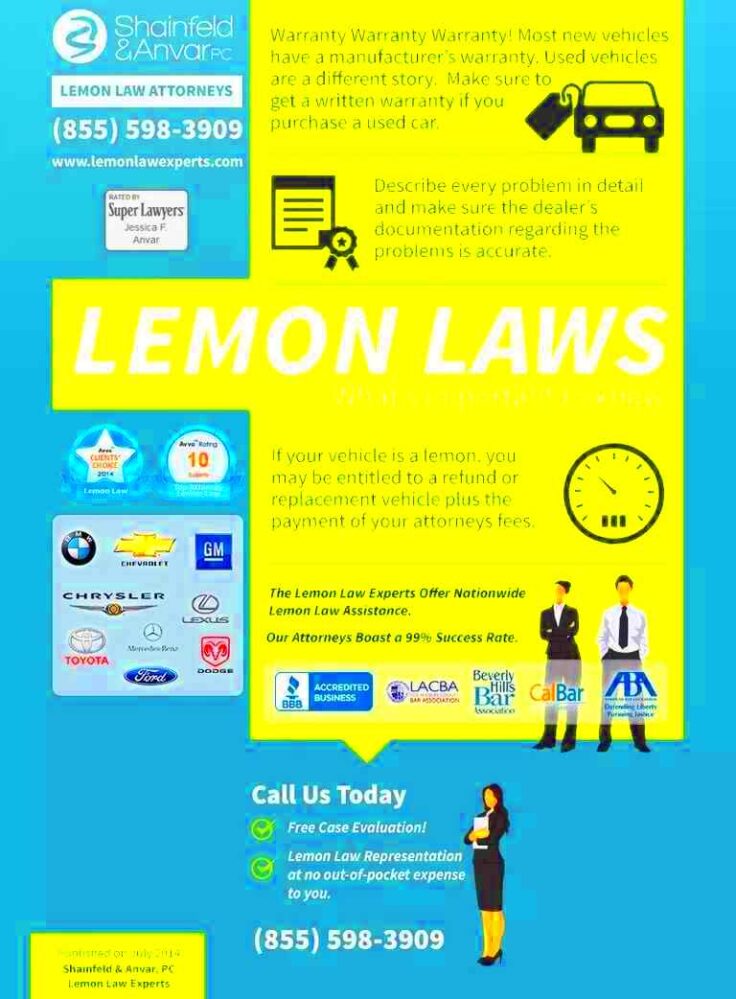Lemon Law in Wisconsin and Your Consumer Rights
The Lemon Law in Wisconsin is designed to protect consumers who purchase defective vehicles. If your new or used vehicle has serious issues that affect its use, safety, or value, you may have a case under this law. The primary goal is to ensure that consumers are not stuck with a vehicle that has recurring problems. It’s crucial to know your rights and the steps you can take if you find yourself in this situation.
What Makes a Vehicle a Lemon

A vehicle is considered a lemon in Wisconsin if it meets specific criteria. Here’s a breakdown of what to look for:
- Serious Defects: The vehicle must have a defect that significantly impairs its use, safety, or value.
- Repair Attempts: You must have made at least four unsuccessful attempts to repair the defect.
- Time Out of Service: The vehicle has been out of service for at least 30 days due to the defect.
If your vehicle meets these conditions, it could be classified as a lemon, giving you rights under the law to seek a remedy.
Steps to Take if You Have a Lemon
If you suspect your vehicle is a lemon, follow these steps to protect your rights:
- Document Everything: Keep detailed records of all repairs, including dates, times, and the nature of the problems.
- Notify the Dealer: Inform the dealer about the ongoing issues and provide them with your documentation.
- Allow a Final Repair Attempt: Give the dealer one last chance to fix the issue, as required by law.
- Consult an Attorney: If the problem persists, consider consulting with a lawyer who specializes in lemon law cases.
Following these steps can help you build a strong case and increase your chances of a favorable outcome.
How to File a Lemon Law Claim
Filing a Lemon Law claim in Wisconsin may seem daunting, but it’s a straightforward process if you know what to do. The key is to follow the proper steps to ensure your claim is valid and well-documented. Here’s a simple guide to help you through the process:
- Gather Documentation: Start by collecting all relevant documents. This includes purchase agreements, warranty information, repair receipts, and any correspondence with the dealer.
- Notify the Manufacturer: You need to inform the vehicle manufacturer about your issues. This can often be done through a formal letter, explaining the problems and including your documentation.
- Request a Hearing: If the manufacturer fails to resolve the issue, you can request a hearing with the Department of Transportation or pursue arbitration if your warranty requires it.
- File a Claim: If arbitration doesn’t yield a satisfactory result, you may then file a lawsuit against the manufacturer. Ensure you do this within the time limits set by the law.
Being organized and thorough will help you present a strong case. Always consult with an attorney experienced in lemon law claims to increase your chances of success.
Possible Outcomes of a Lemon Law Claim
When you file a Lemon Law claim, there are several potential outcomes. Understanding these can help you set realistic expectations. Here are the most common results:
- Replacement Vehicle: If your claim is successful, the manufacturer may provide you with a new vehicle of similar value.
- Refund: Alternatively, you may receive a full refund of the purchase price, including taxes and fees.
- Cash Settlement: In some cases, a cash settlement may be offered, which compensates you for the inconvenience and losses incurred.
- Continued Repairs: If the claim is not successful, the manufacturer might insist on continued attempts to repair the vehicle.
Each case is unique, so outcomes may vary based on the specific circumstances. It’s essential to be prepared for any possibility.
Exceptions to the Lemon Law in Wisconsin
While Wisconsin’s Lemon Law provides robust protections for consumers, there are exceptions you should be aware of. Knowing these exceptions can help you avoid potential pitfalls. Here are some key points:
- Used Vehicles: Lemon Law protections typically apply to new vehicles, so if you purchase a used vehicle, you may have limited or no protections under this law.
- Business Use: Vehicles purchased for business purposes may not qualify for Lemon Law protections, as the law primarily focuses on consumer purchases.
- Negligence: If the defect results from misuse or neglect, such as failing to perform regular maintenance, your claim may be denied.
- Older Models: Vehicles older than one year or with more than 12,000 miles may not qualify for Lemon Law protections.
Understanding these exceptions is crucial. If you believe you have a lemon but fall under one of these categories, it’s wise to consult with a legal expert.
Tips for Consumers to Protect Their Rights
Protecting your rights under the Lemon Law is crucial if you find yourself dealing with a defective vehicle. By taking proactive steps, you can ensure that you’re well-prepared and informed throughout the process. Here are some essential tips to keep in mind:
- Keep Detailed Records: Always document everything related to your vehicle’s issues. This includes repair orders, invoices, and any communication with the dealer or manufacturer.
- Understand Your Warranty: Familiarize yourself with the terms of your warranty. Knowing what’s covered and for how long can help you navigate the claims process more effectively.
- Stay Informed: Educate yourself about the Lemon Law and your consumer rights. Knowing the law empowers you to stand up for yourself and take appropriate action.
- Communicate Clearly: When speaking with dealers or manufacturers, be clear and concise. State your concerns, reference your documentation, and keep a record of these conversations.
- Consult Professionals: If you feel overwhelmed, don’t hesitate to consult with an attorney who specializes in Lemon Law. They can provide valuable guidance and support.
By following these tips, you can help safeguard your rights and navigate the Lemon Law process with confidence.
Frequently Asked Questions About Lemon Law
Many consumers have questions about Lemon Law, especially if they suspect they have purchased a lemon. Here are some common inquiries and their answers:
| Question | Answer |
|---|---|
| What qualifies as a lemon? | A vehicle is considered a lemon if it has a serious defect that impairs its use, safety, or value and has been in for repair at least four times or out of service for 30 days. |
| How long do I have to file a claim? | You typically have two years from the date of purchase to file a Lemon Law claim in Wisconsin. |
| Can I get a refund? | Yes, if your claim is successful, you may receive a full refund, including taxes and fees. |
| What if my vehicle is used? | Lemon Law protections primarily apply to new vehicles, but some used vehicles may still qualify under certain conditions. |
If you have more questions, consulting with a legal expert can provide personalized answers and advice.
Conclusion on Lemon Law and Your Rights
The Lemon Law in Wisconsin serves as a vital protection for consumers who find themselves stuck with defective vehicles. Understanding your rights is the first step in ensuring you receive the justice you deserve. If your vehicle meets the criteria for a lemon, you have the right to pursue remedies, whether it’s a replacement, refund, or cash settlement.
Remember, being informed and proactive is key. Keep detailed records, understand your warranty, and don’t hesitate to seek professional help if needed. By following the guidelines laid out in this post, you can navigate the complexities of Lemon Law with confidence and protect your consumer rights effectively.


